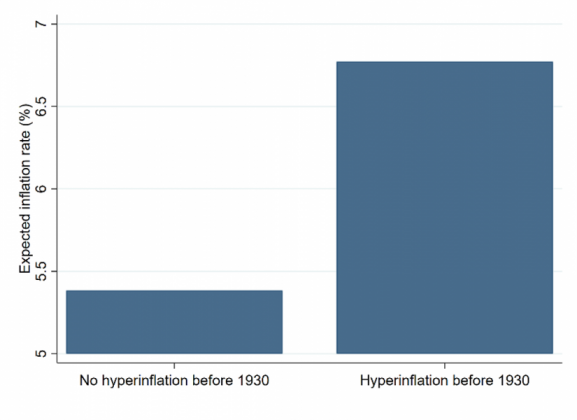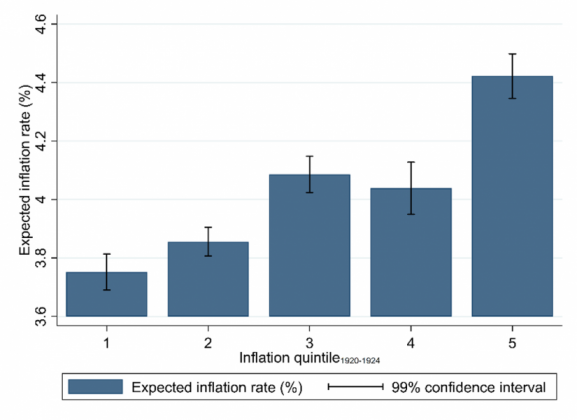



Andre, P., I. Haaland, C. Roth, and J. Wohlfart, 2022, Narratives about the macroeconomy, Working paper, briq – Institute on Behavior & Inequality.
Braggion, F., F. von Meyerinck, N. Schaub, and M. Weber, 2023, The long-term effects of inflation on inflation expectations, Working Paper, Tilburg University.
D’Acunto, F., U. Malmendier, and M. Weber, 2023, Chapter 5 – What do the data tell us about inflation expectations?, in R. Bachmann, G. Topa, and W. van der Klaauw (editors): Handbook of economic expectations, Academic Press, Cambridge, Massachusetts, U.S.A.
Dohmen, T., A. Falk, D. Huffman, and U. Sunde, 2012, The intergenerational transmission of risk and trust, Review of Economic Studies 79, 645-677.
Lamla, M., and S.M. Lein, 2014, The role of media for consumers’ inflation expectation formation, Journal of Economic Behavior and Organization 106, 62-77.
Shiller, R.J., 1997, Why do people dislike inflation?, in C.D. Romer and D.H. Romer (editors): Reducing inflation: Motivation and strategy, University of Chicago Press, Chicago.
Weber, M., F. D’Acunto, Y. Gorodnichenko, and O. Coibion, 2022, The subjective inflation expectations of households and firms: Measurement, determinants, and implications, Journal of Economic Perspectives 36, 157-184.